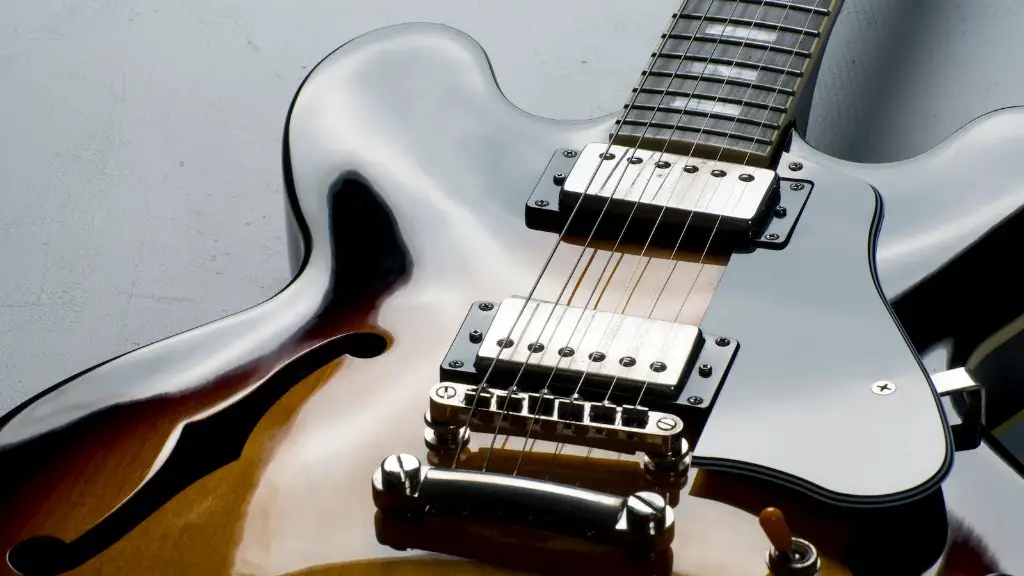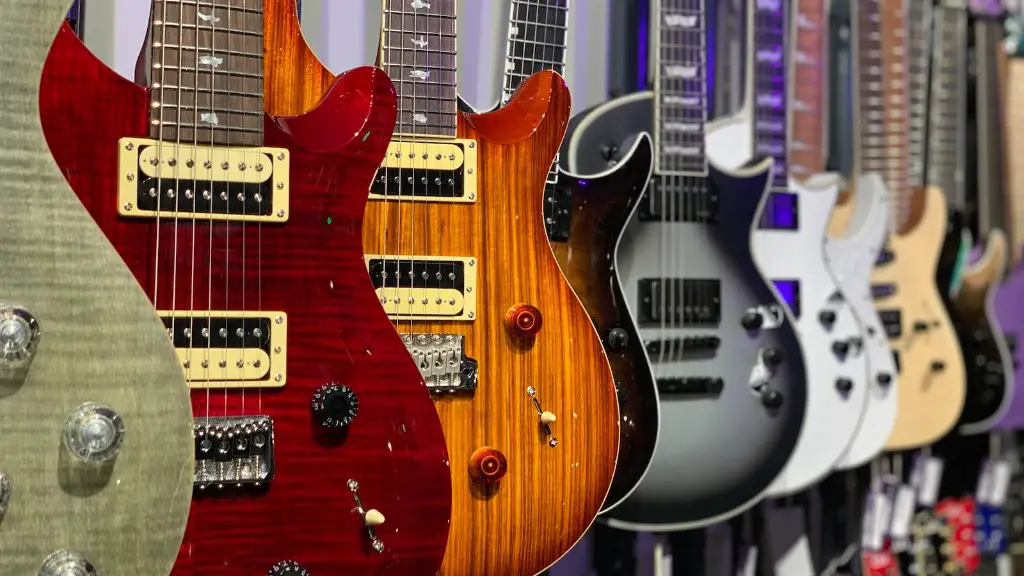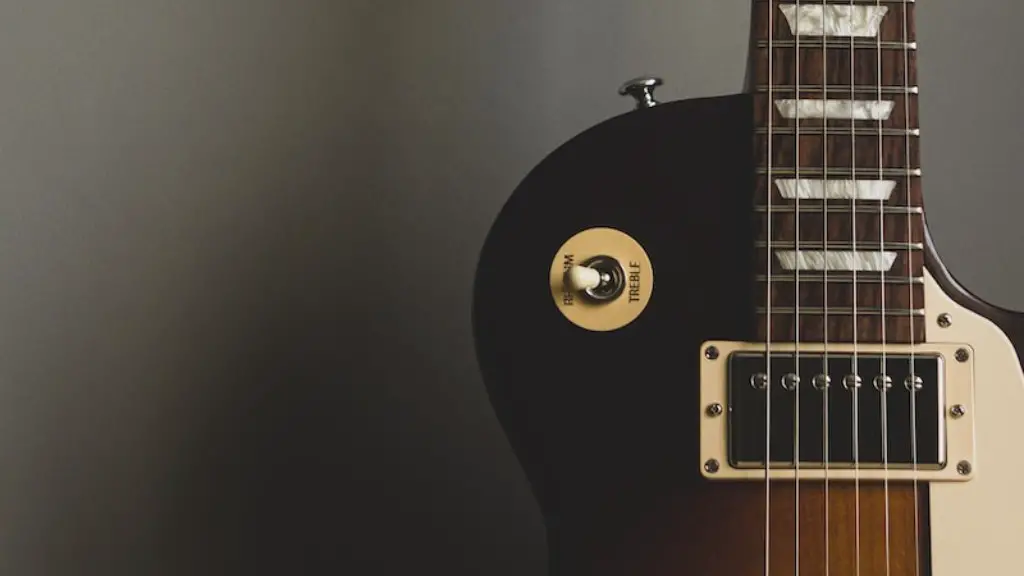Are you interested in learning guitar but don’t know which type to start with? Electric and acoustic guitars have different features, so the decision can be tough.
Acoustic guitars are simpler to learn and you don’t need an amplifier. You can jump right in and start strumming chords. Acoustic guitars usually have steel strings that can be hard on the fingertips of a beginner guitarist.
Electric guitars require an amplifier and often come with lighter strings, which are easier on the fingers. The light strings make bending notes easier, but it does take more time to develop the necessary finger strength for electric guitar playing.
Both electric and acoustic guitars are great instruments for learning how to play music. If you’re just starting out, an acoustic guitar may be the better choice. It’s less expensive and doesn’t require extra equipment, making it a great option for beginners.
Electric and Acoustic Guitars
Electric and acoustic guitars are two of the most popular instruments in the world, and each has its own unique set of advantages and disadvantages. Electric guitars are generally louder, more versatile, easier to transport, and require less maintenance than acoustic guitars. They are also often used in rock or blues music, making them a popular choice for aspiring musicians. Acoustic guitars, on the other hand, require more skill to play but produce a warmer, fuller sound that lends itself well to folk or classical music. Additionally, acoustic guitars are often used for beginner lessons since they are easier to hold and tune.
When deciding which guitar type to learn first it really depends on what style of music you want to play. If you’re interested in rock or blues then electric is probably the way to go. But if you prefer folk or classical then an acoustic guitar could be a better option. Regardless of which one you choose, both electric and acoustic guitars can be great instruments that will help you hone your craft and make beautiful music! The key is finding the right one for you.
The Benefits of Learning Electric and Acoustic Guitars
Learning both electric and acoustic guitars has many benefits. Firstly, it allows guitarists to experience the different sounds, styles and techniques each type of guitar offers. Acoustic guitars offer a warm, mellow sound that is perfect for strumming chords or playing finger-picking styles. Electric guitars tend to have brighter tones, making them great for solos or distortion-heavy rock.
Another benefit of learning both guitars is the versatility it provides. With both instruments, guitarists can play in a variety of musical genres such as blues, jazz, rock or even classical music. Learning both electric and acoustic guitar also allows the guitarist to explore unique sounds they wouldn’t get with just one type of instrument.
Finally, learning both electric and acoustic guitar helps expand your creative horizons by providing different options for creating music. Whether you’re writing songs or just jamming with friends and family, having access to each instrument opens up more possibilities for expression.
Whether you choose to learn electric or acoustic guitar first is up to you; both offer unique benefits that will help you become a more versatile musician. Ultimately though, the best way to decide which one is right for you is by exploring them both!
Choosing the Right Type of Guitar
Choosing the right type of guitar can be a daunting task. There are so many options available and each one has different benefits that can help you progress as a musician. The two main types of guitar are electric and acoustic. Both offer unique advantages and it is important to consider which one is right for you before making a decision.
Electric guitars are powerful instruments with a wide range of possibilities. They are usually recommended for more experienced players, as they require specific techniques to get the most out of them. They also tend to be more expensive than acoustic guitars. On the other hand, electric guitars can provide an array of sounds that acoustic guitars cannot, and they are often used in genres such as rock, blues, and metal.
Acoustic guitars are less expensive than electric guitars, making them an ideal option for beginners. They also require fewer accessories than electric guitars and don’t need to be plugged in to make music. In addition, acoustic guitars offer a unique sound that is perfect for playing folk or country music styles.
Ultimately, the decision between electric or acoustic guitar comes down to personal preference and budget. If you have plenty of money to invest in your instrument then an electric guitar may be best for you; however, if you’re on a tight budget then an acoustic guitar is likely the better option. It’s important to find the right balance between quality and cost. With some research and practice, you will
Choosing Your First Guitar
When deciding which guitar to learn first, there are a few key considerations. Acoustic guitars are a great choice for beginners, as they are generally easier to play due to the lighter strings and more forgiving neck. Electric guitars can be more intimidating and require more skill and practice. However, they offer a wider range of sounds and can be used in many different genres. Both types of guitar will require regular maintenance and tuning. Additionally, acoustic guitars have the benefit of not requiring an amplifier or other additional equipment. If you plan on playing with a band or recording music, electric guitars may be better suited for your needs.
Before making your decision, it is important to consider the type of music you want to play. Acoustic guitars are best for softer acoustic-based genres such as folk or country, while electric guitars work best for louder rock and metal genres. If you don’t know what kind of music you want to play yet, then it is best to start with an acoustic guitar so you can explore different sounds without needing additional equipment.
No matter which type of guitar you decide on, it is important to take lessons from an experienced instructor who can help guide you through the learning process. With regular practice and dedication, any guitar can become your own personal instrument!
Learning Electric and Acoustic Guitars Simultaneously
Guitar players often debate whether to learn electric or acoustic guitar first. The truth is, it doesn’t matter which you choose to start with. What matters is that you can enjoy the process of learning both. Here are some tips for mastering electric and acoustic guitars at the same time:
First, focus on one type of guitar at a time and master the basics. Learn how to tune, how to read tablature, and practice your chord shapes and strumming patterns. Once you have a solid foundation in one type of guitar, then move on to the other.
Second, use different techniques when playing each type of guitar. Electric guitars often require different fingerings than acoustic ones, so practice both types of scales and chords in order to become proficient in both styles.
Third, experiment with different genres while playing both types of guitars. This will help you develop a better understanding of the instrument as well as increase your skill level in various styles. You might even find yourself more comfortable playing one style over another.
Finally, take some time to enjoy playing each type of guitar without worrying about mastering them both immediately. Have fun exploring different sounds and techniques until you find a style that works best for you!
What Kind of Music Is Best Suited for Each Type of Guitar?
When deciding which type of guitar to learn first, it is important to consider the kind of music that best suits each type. Acoustic guitars are typically used in folk, country, and blues music. They are ideal for fingerpicking and strumming chords. Electric guitars are better suited for genres like rock, metal, jazz, and pop. Electric guitars are capable of producing amplified sounds and create a fuller sound with the help of effects pedals.
If you’re just starting out, it’s recommended to begin with an acoustic guitar. It is easier to learn on an acoustic as the strings require less pressure to be pressed down against the fretboard. Once you have mastered basic chords and techniques on an acoustic guitar, then you can move onto an electric guitar as they usually require more skill and precision when playing.
Final Words
The decision of which guitar you should learn first will depend on your own musical tastes and goals. If you are looking to play a variety of styles, then learning electric guitar can be a great way to gain versatility. If you are interested in strumming acoustic classics, then the acoustic guitar might be the best choice for you. No matter which path you choose, learning both electric and acoustic guitars will ultimately expand your musical abilities. Ultimately, the decision is yours. Take some time to consider what your goals are and choose the instrument that best suits those goals. Good luck!





